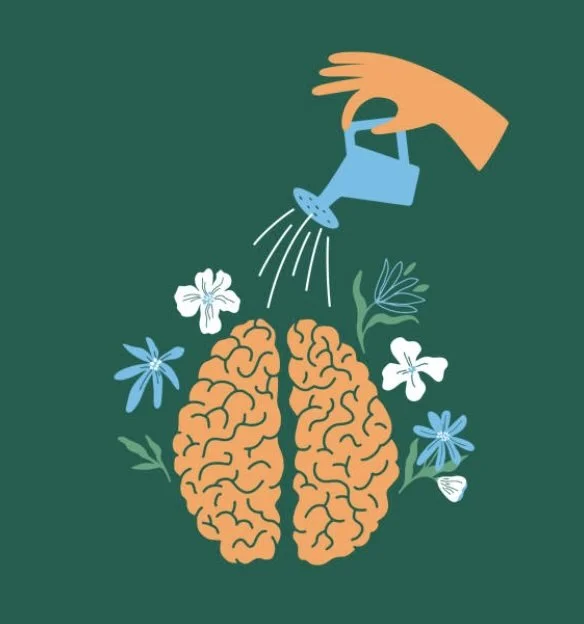Be Kind to Your Mind
/By Olivia Grossklaus, AMFT
In the whirlwind of daily life, we often prioritize external obligations such as work deadlines, social commitments, friend/family responsibilities. We check off to-do lists, manage relationships, and keep up appearances, both on and offline. Yet, beneath all that noise lies the most powerful and constant voice in our lives: our own internal dialogue.
This internal environment, your thoughts, beliefs, and emotional patterns, are the operating system for your mind. Whether you’re conscious of it or not, the way you talk to yourself shapes how you perceive the world, how you feel and interpret your emotions, and ultimately, how you live.
What Is Internal Dialogue?
Your internal dialogue is the ongoing conversation you have with yourself. It's the voice in your head that evaluates your actions, reacts to events, plans the future, and replays the past. This dialogue can be either constructive and motivating or harsh and self-defeating.
For example, consider the difference between these two internal reactions to a mistake:
● "I'm so stupid. I always mess up."
● "That was a tough moment, but I can learn from this and do better next time."
Both are responses to the same event. But one tears you down, while the other builds you up. That’s the power of internal dialogue.
Self-talk shapes your self-worth. Your brain is always listening. The way you speak to yourself becomes the way you feel about yourself. Negative self-talk reinforces insecurity, doubt, and fear. On the flip side, compassionate and realistic self-talk cultivates confidence, resilience, and self-trust.
Self-talk influences decision making. If your internal dialogue is dominated by fear or harsh judgment, you're more likely to avoid challenges or settle for less. But when your inner voice supports growth and self-compassion, you're more likely to take healthy risks, advocate for yourself, and pursue meaningful goals.
Self-talk impacts physical and mental health. Chronic negative thinking is linked to stress, anxiety, depression, and even physical health problems like weakened immunity or heart disease. A nurturing internal environment can promote calm, balance, and emotional well-being, allowing your body and mind to function more effectively.
How you treat yourself sets the tone both for how you treat others and how you allow others to treat you. A kind, grounded internal dialogue strengthens boundaries, empathy, and the ability to connect authentically with others.
How to Cultivate a Healthier Internal Environment
● Pay attention to the tone and content of your self-talk. Awareness is the first step toward change.
● Ask yourself, “Is this thought true? Is it helpful? What would I say to a friend in this situation?”
● Treat yourself with the same kindness and understanding you'd offer a loved one.
● Journaling, meditation, or even quiet walks can help you check in with your internal world and recalibrate when needed.
● The people you engage with (on and offline) can either reinforce or challenge your internal dialogue. Choose relationships that support your growth and self-respect.
You have so much power and control over your inner space. It deserves care, attention, and intention. Nurturing your internal dialogue isn’t about pretending everything is fine, it’s about creating a space within where growth is possible, even in difficult moments.
The world can be chaotic and unpredictable, but your internal environment can be your anchor. Start treating it like the sacred space it is, because the most important relationship you’ll ever have is the one you have with yourself.





